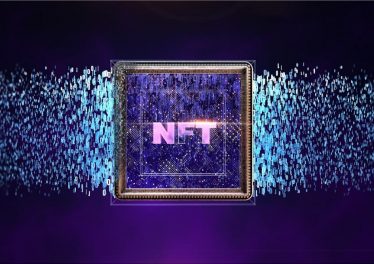The Open Network (TON), a blockchain platform linked with the messaging service Telegram, is currently under siege from a wave of phishing attacks that have escalated amid its rapid growth in 2024.
Yu Xian, the founder of the blockchain security firm SlowMist, has raised alarms over the increasing frequency of these attacks targeting the TON ecosystem, which is populated with various decentralized applications (DApps) and tokens built on the TON blockchain.
Vulnerabilities Linked to Anonymous Numbers
In a detailed post on the social media platform X, dated June 23, Xian expressed concerns over the TON ecosystem’s exposure to phishing schemes, exacerbated by the platform’s open nature.
According to Xian, scammers easily infiltrate message groups within the Telegram network, deploying phishing links to deceive users. These fraudulent activities often involve the distribution of airdrops and bot forms, which mislead users into surrendering their TON wallets en masse.

One significant vulnerability within the TON ecosystem is the use of anonymous numbers by Telegram users. These numbers, which do not require a SIM card for account creation and operate on blockchain technology, increase the risk of phishing attacks.
If such numbers are compromised, users could potentially lose their associated Telegram accounts unless they have additional security measures like independent passwords or two-step verification in place.
This feature, introduced by Telegram in late 2022, allows for enhanced privacy but also presents new security challenges. These anonymous accounts are particularly attractive targets for cybercriminals due to their detachment from conventional identification methods.
Financial Growth and User Engagement in the TON Ecosystem
The attractiveness of the TON ecosystem is not just limited to its innovative features but also its dramatic growth in financial terms. The total value locked (TVL) within various TON projects has surged by 4,500% since January 1, 2024, now standing at $648 million, according to data from DefiLlama.
This growth is significantly fueled by the rising popularity of TON’s native cryptocurrency, Toncoin (TON), and the play-to-earn token Notcoin (NOT), which have found favor particularly among the gaming community on Telegram.
Inal Kardan, the gaming lead at the TON Foundation, highlighted the rapid accrual of 35 million users over just five months. This phenomenal growth has demonstrated the potential of utilizing social media messengers as platforms for unique gaming experiences that also introduce users to the crypto sector.
The integration of gaming with social media messengers has become a key driver in the expansion of the TON ecosystem. However, the surge in idle game popularity brings with it a caution from industry experts about the sustainability of such business models.

Paglia, an industry analyst, pointed out that while these projects have demonstrated short-term success, their long-term viability depends on their ability to establish a solid economic structure.
Traditional gamers typically engage with games for their entertainment value rather than the potential for earnings, suggesting that mainstream adoption of clicker game models might face challenges.
Acknowledging the need for continual evolution, the developers of Notcoin have recently initiated the “Explore” project, which incentivizes users to earn coins and other bonuses by completing tasks across various Web3 projects.
In a similar vein, the team behind Hamster Kombat is preparing to expand its reach by launching the HMSTR token on the TON blockchain.
Warning Against These Security Threats
Currently, the TON ecosystem comprises 43 tokens, with a collective market capitalization of $19.2 billion as per the latest figures from Bitget. Despite these robust indicators of growth and user engagement, the platform’s ecosystem remains a hotspot for potential phishing and scam attacks.
In response to these security threats, cybersecurity firm Kaspersky issued warnings in April about a significant scam involving TON ecosystem users. The scam involves unofficial Telegram bots that trick users into linking their third-party cryptocurrency wallets, subsequently enabling the theft of their coins.
As TON continues to navigate through its expansive growth trajectory in 2024, the community must remain vigilant.
The rising sophistication of phishing attacks and scams necessitates a proactive approach to security, emphasizing the need for both users and developers to fortify their defenses against these pervasive threats.
- Bitcoin Falls to $65K as Mt. Gox Transfers $2.8 Billion BTC to External Wallet
- News of Marathon Digital’s $138 Million Fine for Breach of Non-Disclosure Agreement Triggers a Bearish 2.5% of Its MARA Stock
- Are $530M Bitcoin ETF Inflows a Blessing or Caution?
- Metaplanet Teams with Hoseki for Real-Time Bitcoin Holdings Verification
- 10 Best Meme Coins To Invest in 2024
- Building Secure Blockchain Systems: An Exclusive Interview with ARPA and Bella Protocol CEO Felix Xu
- Building The “De-Facto Crypto Trading Terminal”: An Exclusive Interview with Aurox CEO Giorgi Khazaradze
- Building a New Global Financial System: An Exclusive Interview With Tyler Wallace, Analytics Head at TrustToken
- “Solana is the Promised Land for Blockchain” — An Exclusive Interview with Solend Founder Rooter
- El Salvador: Where The Bitcoin Revolution Begins With A Legal Tender

 Why Trust Us
Why Trust Us







